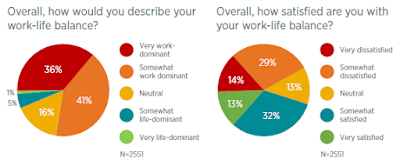Is a work-life balance achievable – and can it be maintained? Does a balance between life and work domains truly exist at all, or is “work-life balance” a myth or moving target with a definition that changes for each individual?
If you’re struggling to find equilibrium between work and life, you may find yourself asking yourself (or even asking your colleagues) these questions. Thankfully, thousands of veterinarians from around the country have contributed their wisdom surrounding the importance, intricacy, and achievability of a satisfying work-life balance in the AVMA Trust 2022 Trend Report: U.S. Veterinarians’ Work-Life Experience1.
The idea of work-life balance is more of an intangible and misunderstood concept than it appears. One veterinarian respondent suggests that a “work-life balance is a moving target,” meaning the scale may tip in favor of one aspect of life at certain times in your career. Another survey respondent aptly summarizes the complicated concept saying, “Work-life balance is a myth. There is never a balance. One will, at any given time, be dominant over the other. The hope is that, over the long run, life will approach the median.” Yet another respondent questioned the validity of “work-life balance” altogether, pointing out, “Work is a part of life, so the concept of work-life balance is a little artificial.”
Whether you see work-life balance as a moving target, myth, or artificial construct, finding ways to cope with the way your work and life are intertwined may serve as the key to finding satisfaction on both fronts. A fundamental part to finding happiness in both home and work lives, however, is the support that a veterinarian receives from their employer and colleagues as well as from family and friends.
Another responding veterinarian from the AVMA Trust 2022 Trend Report explained it this way: “You need to come to terms with what you feel is an achievable balance and work towards that, knowing it’s a fluid goal.” A healthy relationship with a work-life balance means recognizing when the imbalance is having a negative effect on your work and taking the steps needed to bring your life closer to your desired balance.
The key to achieving a balance that works also depends on individual needs. If you’re a person who finds joy in going into work each day, then dedicating a healthy amount of time and energy to your career may be satisfying. On the other hand, if you are more invigorated by spending time with family and friends or doing enjoyable hobbies, you may need to prioritize those activities to balance out the demands of your job.
Researchers acknowledge that satisfaction with one's work-life balance is individual and must be viewed through the lens of what is most important to a person at that point in time. Aside from personal preferences, the concept of a work-life balance should be viewed as a goal to be achieved over a period of time instead of on a day-to-day basis in order to maximize satisfaction with the balance you find.
1The AVMA Trust 2022 Trend Report: U.S.
Veterinarians’ Work-Life Experience is based on a national survey conducted
in fall 2021. N=2,553 Practicing Physicians. N=327 Retired Veterinarians. 95%
confidence, ± 3% margin of error.


